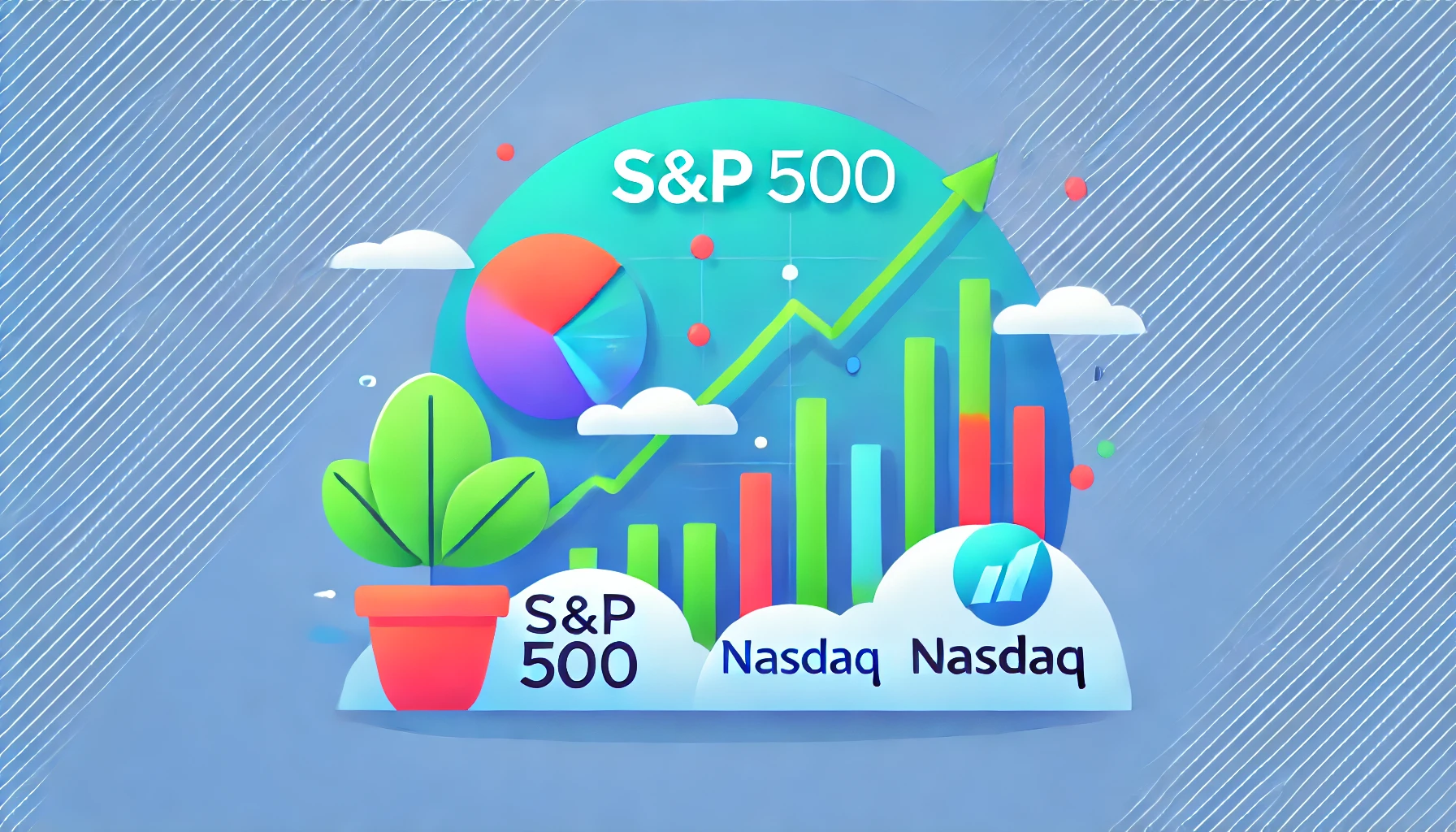
US stocks experienced a rise on Friday, buoyed by the latest reading from a significant inflation measure, which continued to show signs of cooling. Investors also reacted to the aftermath of the Biden-Trump debate. The day saw a mix of economic indicators and political developments influencing market sentiment, contributing to a relatively stable performance for major indices.
S&P 500 and Nasdaq Make Gains
The S&P 500 (^GSPC) increased by approximately 0.1%, nearing its record high. The Nasdaq Composite (^IXIC) advanced by 0.3%, while the Dow Jones Industrial Average (^DJI) saw a slight decline of 0.1%. This movement reflects a broader trend of cautious optimism among investors. Despite a turbulent week marked by volatility, the indices showed resilience, suggesting that investors are still finding reasons to be hopeful about the market’s trajectory.
Market Eyes Positive End to a Bumpy Week
Despite a turbulent week, these indices are heading towards a positive finish, with the S&P 500 and Nasdaq rebounding from a three-day losing streak. The anticipation of a strong end to the first half of the year is tempered by concerns about potential challenges in the second half. Market analysts are divided on whether the current momentum can be sustained, with some warning of a possible correction due to ongoing economic uncertainties.
Fed’s Preferred Inflation Gauge Eases
The final crucial data for the first six months came from the Fed’s favored inflation indicator. According to Yahoo Finance’s Josh Schafer, inflation eased in May, with prices rising at the slowest rate since March 2021. This data point is critical as it provides insight into the broader economic environment and helps set expectations for future Federal Reserve actions. The cooling inflation suggests that the aggressive interest rate hikes over the past year might be starting to have the desired effect.
Core PCE Index in Line with Expectations
The core Personal Consumption Expenditures (PCE) index, which excludes food and energy costs and is closely monitored by the Fed, rose by 0.1% in May compared to the previous month, aligning with Wall Street’s expectations. This modest increase indicates that inflationary pressures are easing, which is a positive sign for the economy. However, it also highlights the delicate balance the Fed must maintain in ensuring that inflation continues to decline without stifling economic growth.
”A depiction of a debate between two candidates—one thoughtful, the other confident—amid financial symbols and stock market”.
Political Developments Influence Markets
Political developments also played a role in market dynamics. Investors noted President Joe Biden’s underwhelming performance in his initial debate against presumed Republican candidate Donald Trump. Trump’s promises of tax cuts and trade restrictions are perceived as potential stock market boosters. Shares in Trump Media & Technology Group (DJT) surged in morning trading, reflecting investor optimism about Trump’s economic policies.
Consumer Resilience Under Scrutiny
Additionally, the market is watching for further signs of weakening consumer resilience, as some major companies have reported negative sales outlooks. Nike (NKE) shares plummeted by over 15% in early trading, and Walgreens (WBA) stocks continued to struggle following a 22% drop on Thursday. These declines underscore concerns about consumer spending, which is a critical driver of economic growth.
Nike’s significant drop is particularly noteworthy given its status as a bellwether for consumer trends. The company’s disappointing sales figures suggest that consumers might be tightening their belts amid economic uncertainties. This trend, if it continues, could have broader implications for the retail sector and the economy as a whole.
Broader Market Implications
The combination of cooling inflation, political developments, and consumer spending trends presents a complex picture for the market. On one hand, the easing of inflation is a positive sign, suggesting that the Fed’s policies are working. On the other hand, the political uncertainty and signs of weakening consumer resilience pose significant risks.
Looking Ahead
The coming months will be crucial in determining the market’s trajectory. Investors will be closely watching the Fed’s actions, particularly any indications of further interest rate adjustments. Political developments, especially related to the upcoming election, will also play a significant role in shaping market sentiment.












